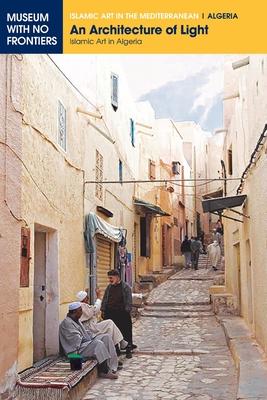An Architecture of Light / Islamic Art in Algeria is the most recent title to be published in our series Islamic Art in the Mediterranean. This illustrated book is a thorough guide to Algeria's Islamic artistic heritage, from the earliest trading routes in the Sahara to the cosmopolitan port of Algiers. It can be enjoyed as an armchair guide to Algeria's museum collections and architecture, which are described in exquisite detail, or to inform travellers as they follow one or more of five different itineraries.
The guide begins with an overview of the expansive cultural influence of Islam around the Mediterranean, beginning in the seventh century, and its transformation of art and architecture. The development of Islamic art through successive dynasties, from Damascus to Lisbon, is summarised through an examination of religious and secular architecture.
A separate historical introduction revisits centuries of local religious and political strife in the region we now call Algeria, and their enduring legacies. Competing sects, rulers, tribes, militias, and profiteers all left their marks on diverse populations and indigenous cultures.
The itineraries include excursions to mosques, museums, fortresses, tombs, and palaces in cities and rural areas. Regional customs, crafts and musical traditions are described in essays by local authors. On almost every page, vivid photographs of minarets, arches, carvings, tiles, jewellery, and landscapes accompany the text. Diagrams and building plans show both great and humble structures of daily life in cities and villages.
From a sumptuous palace in Algiers to a hand-built dam in the highlands, from an adobe house in a remote valley to a whitewashed minaret in the plains, this guide takes the reader to places that document diverse cultural movements and their enduring monuments. Each site is described and illustrated, and side trips and scenic detours are suggested.
Museum With No Frontiers is pleased to present this wide-ranging work. We hope that people around the world might use it to discover the Central Maghreb's rich past.
